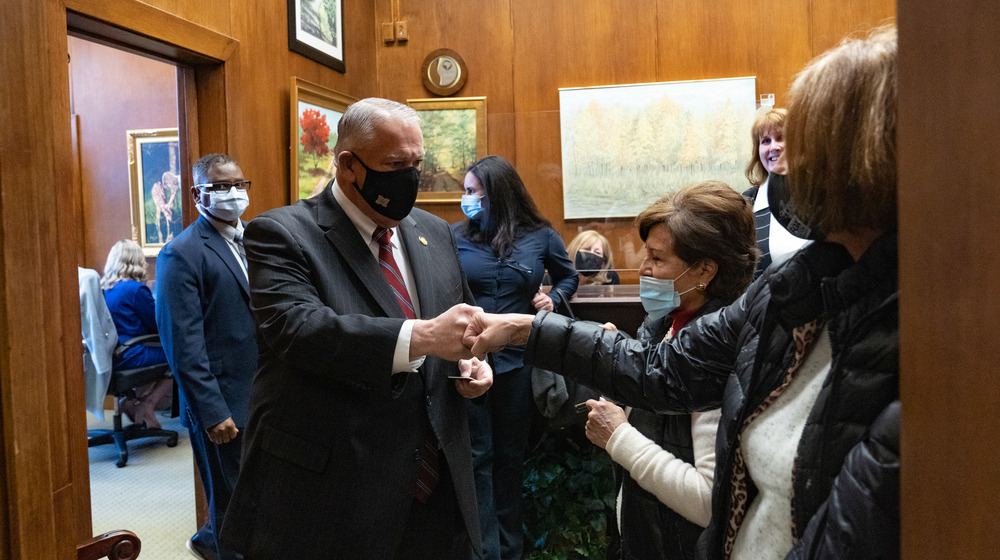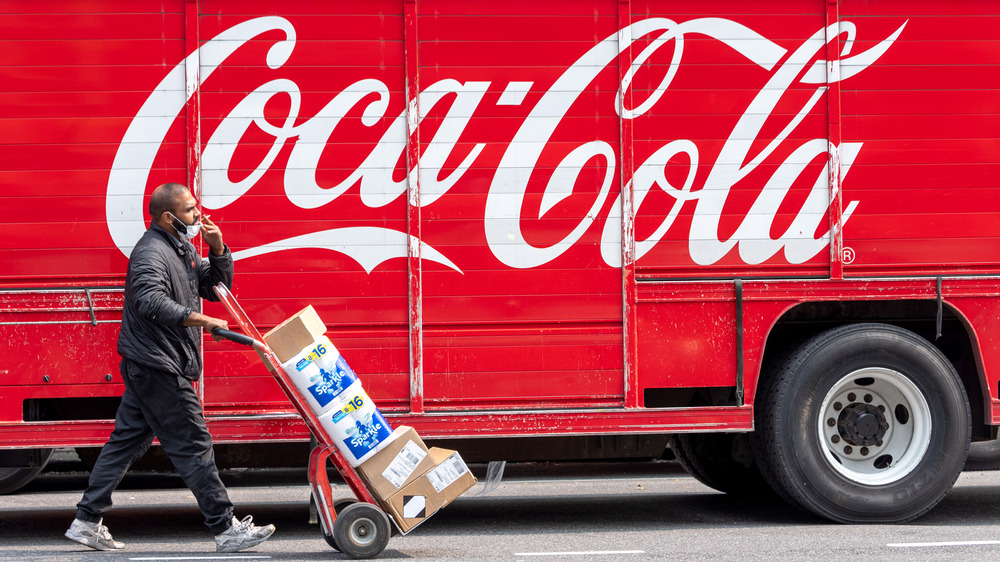The Reason Some Republicans Are Boycotting Coca-Cola
Along with peaches, Coca-Cola is Georgian. So when David Ralston, the Republican Speaker of the Georgia House of Representatives, took the time moments after he ended a legislative session to crack open a Pepsi, it meant something, apparently. This move, which The Atlanta Journal-Constitution reported, occurred during Republican calls to boycott Coca-Cola in favor of Pepsi (via Twitter).
The iconoclastic beverage decision comes days after James Quincey, Chairman and CEO of the Coca-Cola Company, called the "Election Integrity Act of 2021" that recently passed "unacceptable" in an interview with CNBC. "It is a step backwards and it does not promote principles we have stood for in Georgia around broad access to voting, around voter convenience, about ensuring election integrity and this is, this is frankly just a step backwards," Quincey said. When asked why Coke had not been clearer about this before the vote, Quincey dug in, reaffirming that Coke had always opposed it in spirit. The act, as described by Georgia Public Broadcasting, would implement changes to the state's voting laws, including stricter absentee voting regulations, stricter early voting regulations, and earlier results for votes counted, all of which would disproportionately disenfranchise the Black community.
"Given Coke's choice to cave into the pressure of an out of control cancel culture," house members explained to Coke in a letter posted on Twitter, "we respectfully request all Coca-Cola Company products be removed from our office suite immediately." How this boycott is not an attempt to cancel Coke was left unexplained.
Coca-Cola has made many foes but no friends
Although the Republicans are now attempting to boycott Coca-Cola, the corporation has failed to gain a new, fervent following for their trouble. The issue, as hinted by the CNBC interview, is that Coke only declared the bill "unacceptable" when its passing became fact, accepted or not.
One might argue that the only reason Coke even waded into the issue was that they felt public pressure to do so. A week before the CNBC interview, The Atlanta Journal-Constitution covered how critics of the Republican act had announced their own boycott of the company. Bishop Reginald Jackson told the paper that if "Coca-Cola wants Black and brown people to drink their product, then they must speak up when our rights, our lives and our very democracy as we know it is under attack."
So Coca-Cola acceded to their demands, hoping to appear as if they did not tacitly condone voter suppression. However, the fact that this occurred after the company faced threats of a boycott and being branded as racist means that Coke cannot enjoy the benefits of playing a heroic corporate role. As WABE reported, the same Bishop Jackson still called for a boycott against the corporation: "We will not give them our money... we're not going to support these corporations." And since they stepped in, they also face another boycott threat that is somehow different from the first. Coke's caught by politics on both sides.

